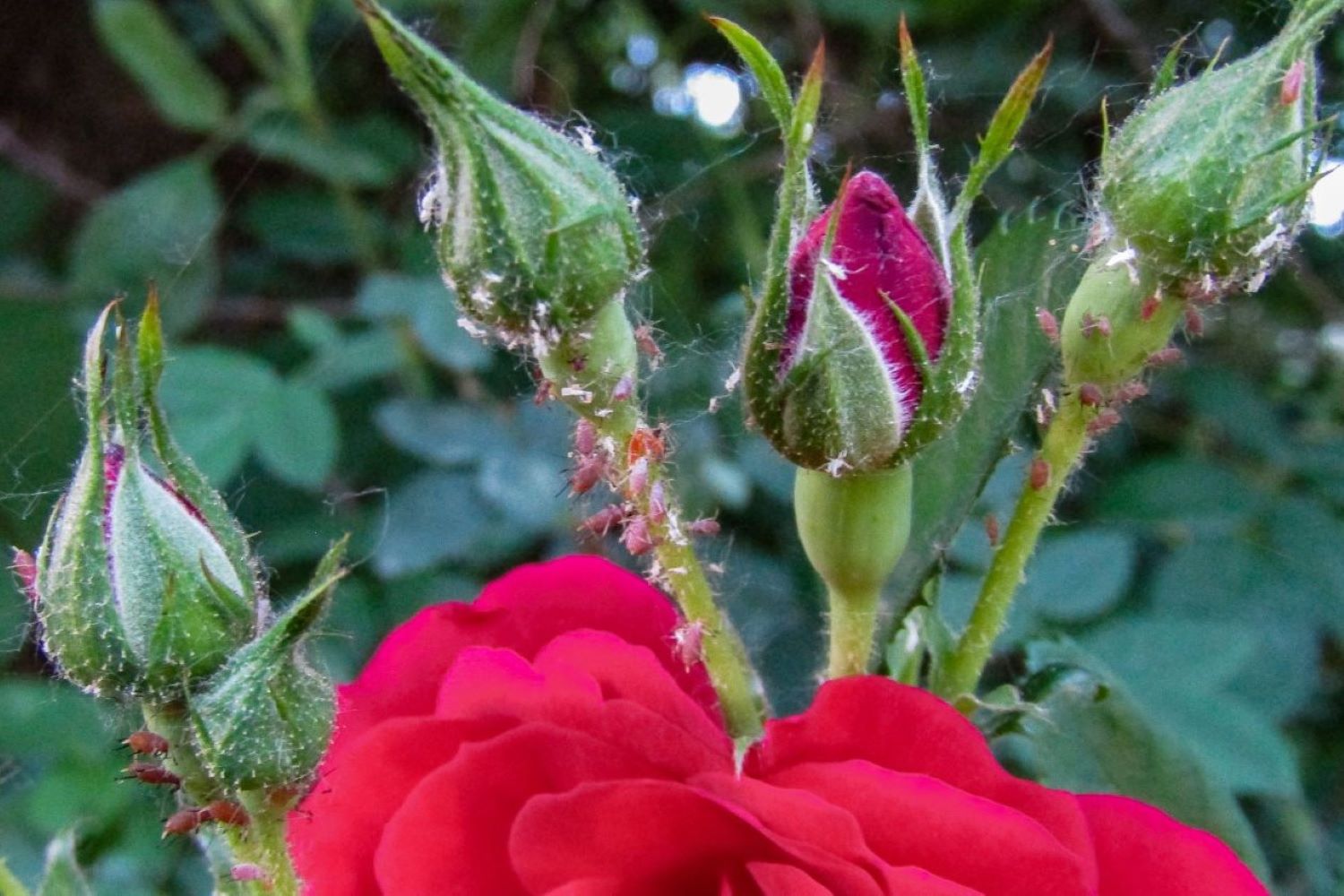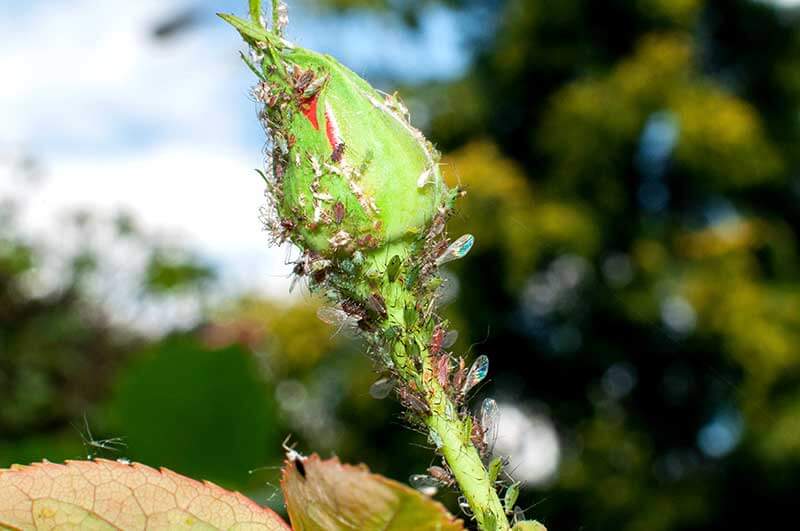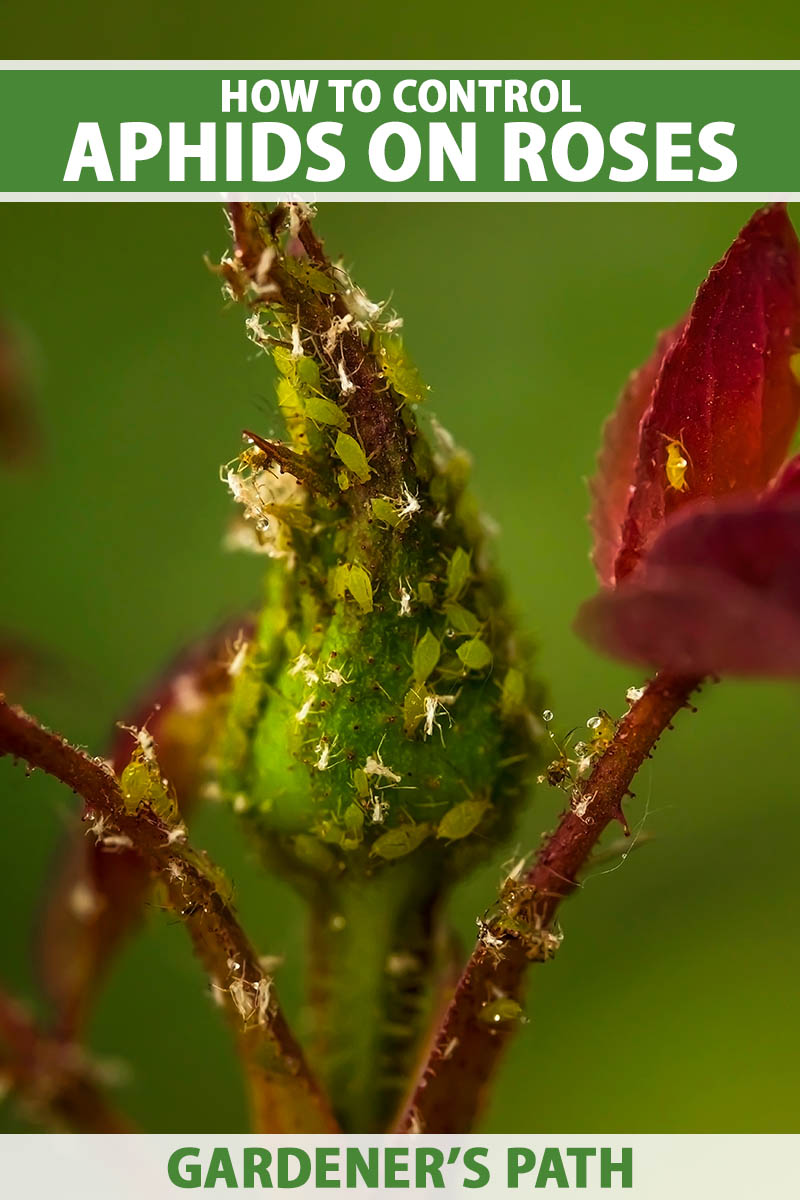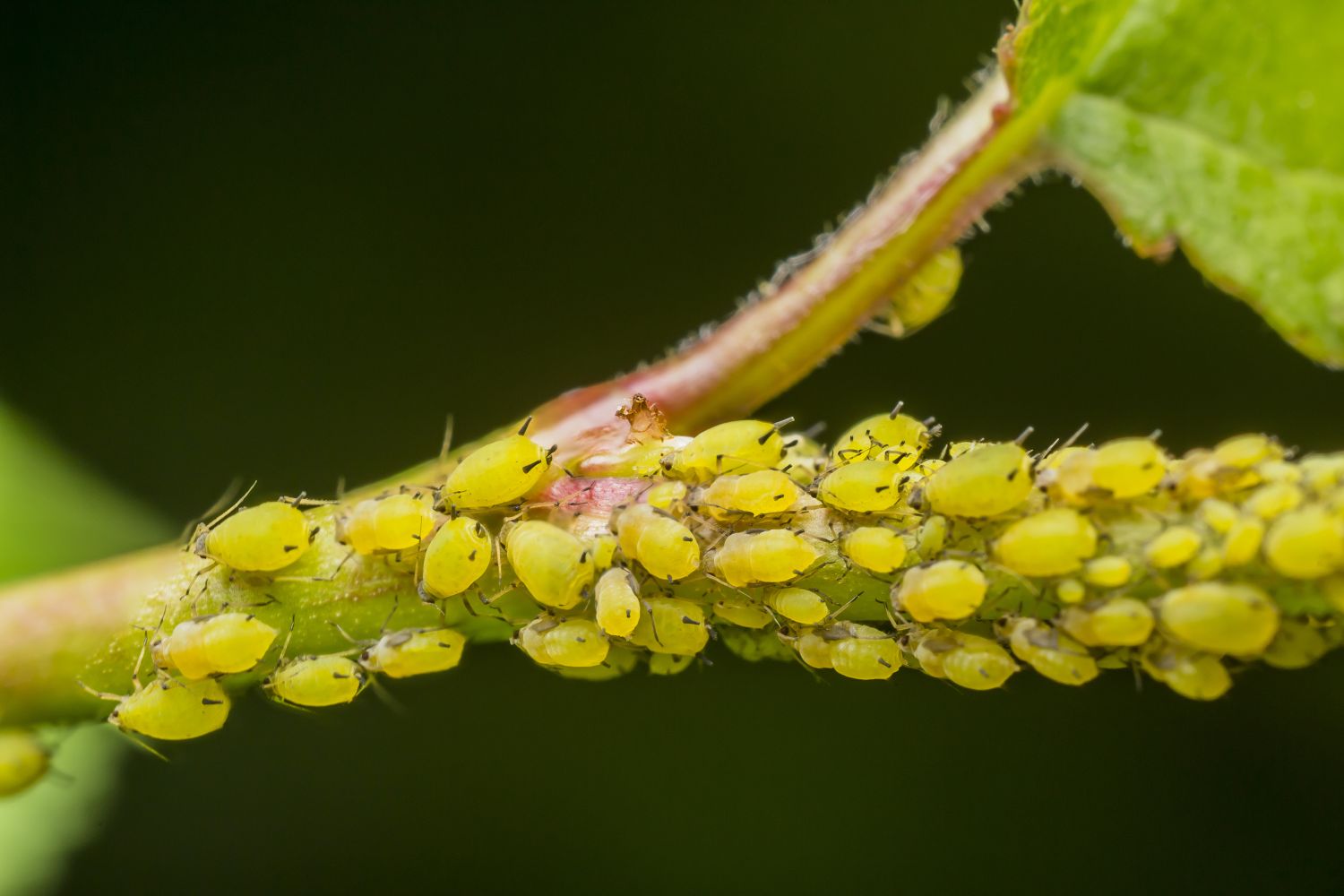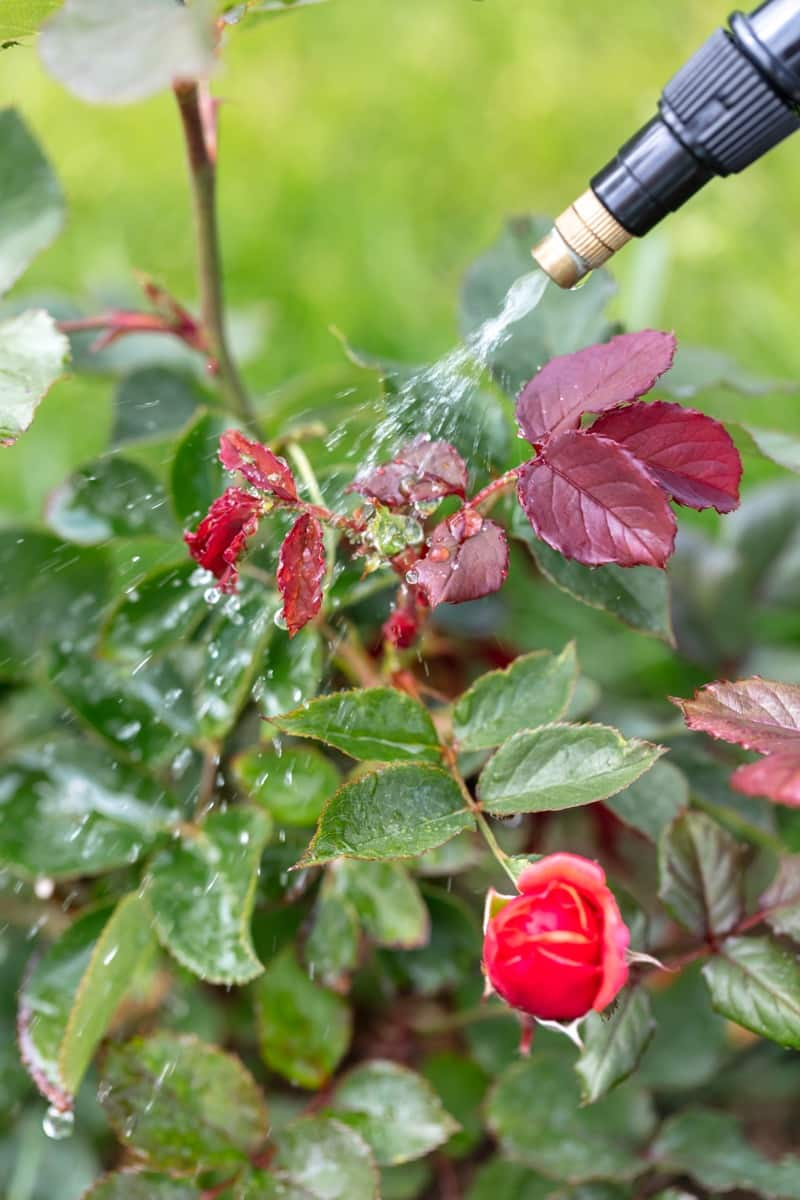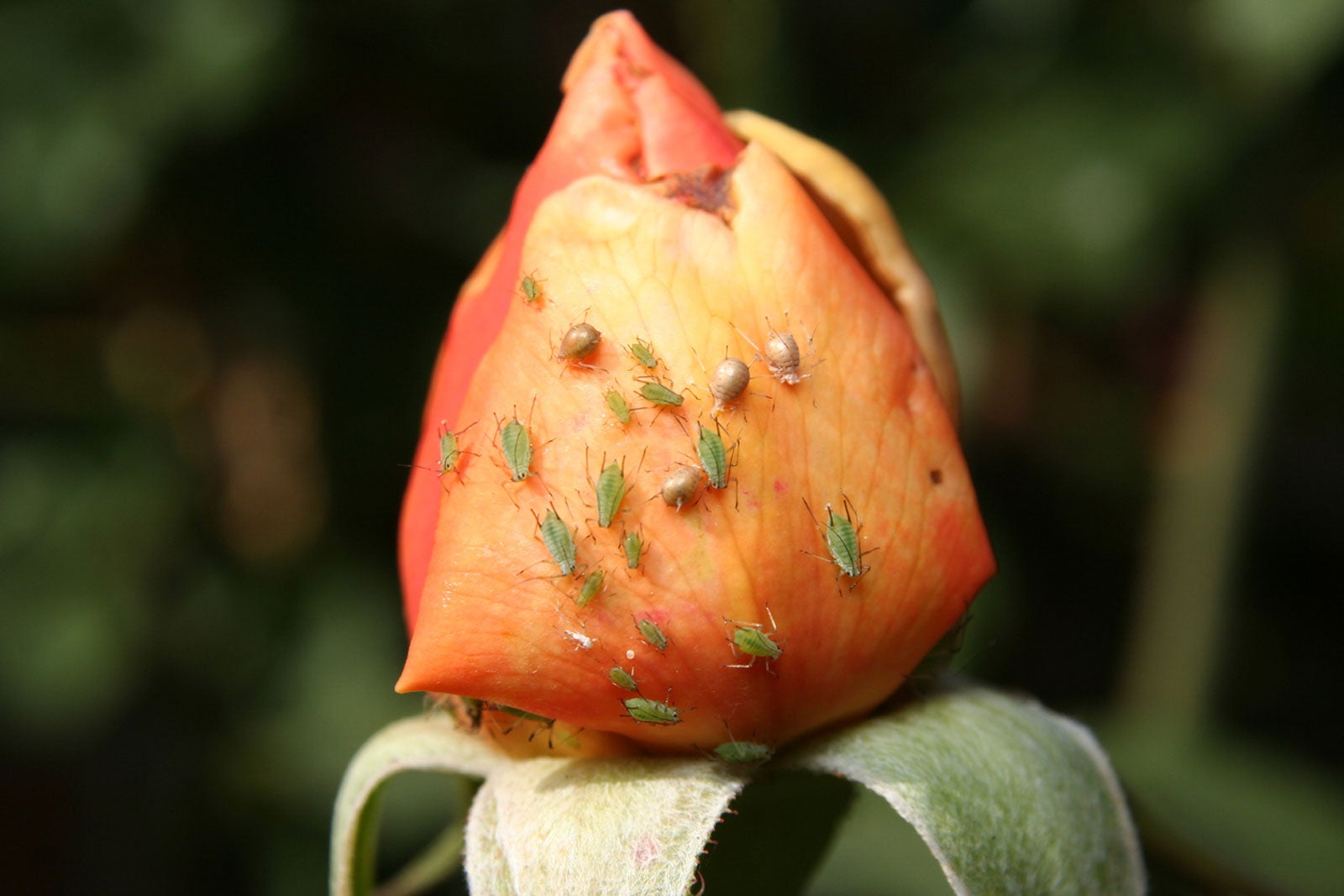Understanding the Aphid Threat
Aphids are one of the most common pests that can infest roses, causing significant damage to the plants and reducing their beauty. These small, soft-bodied insects feed on the sap of the rose plant, causing curled or distorted leaves, stunted growth, and reduced flower production. If left unchecked, aphid infestations can lead to a decline in the overall health of the plant, making it more susceptible to other pests and diseases.
One of the most noticeable signs of an aphid infestation is the presence of these tiny insects on the stems and leaves of the rose plant. Aphids can be green, yellow, black, or white, and are often found in clusters on the tender shoots and buds of the plant. They can also secrete a sticky substance called honeydew, which can attract other pests and promote the growth of sooty mold.
It’s essential to take action to prevent further damage when you notice the first signs of an aphid infestation. Ignoring the problem can lead to a rapid increase in the aphid population, making it more challenging to control them. By understanding the aphid threat and taking proactive measures, you can protect your roses from these pests and keep them healthy and thriving.
So, how to keep aphids off roses? The first step is to monitor your plants regularly, inspecting them for signs of aphids and other pests. This will help you catch any infestations early, making it easier to control them. You can also use physical barriers, such as fine-mesh screens, to prevent aphids from reaching your roses. Additionally, maintaining good garden hygiene, including removing weeds and debris, can help reduce the risk of aphid infestations.
By taking these steps, you can create an environment that is hostile to aphids and other pests, reducing the risk of infestations and keeping your roses healthy and beautiful. In the next section, we’ll explore more ways to create an aphid-hostile environment and prevent infestations.
Creating an Aphid-Hostile Environment
Maintaining good garden hygiene is crucial in preventing aphid infestations on roses. Weeds, debris, and infested plants can all provide a haven for aphids, allowing them to multiply and spread to your roses. By removing these potential sources of infestation, you can reduce the risk of aphids reaching your roses.
One effective way to prevent aphids from reaching your roses is to use physical barriers. Fine-mesh screens can be placed around the plants to prevent aphids from flying or crawling onto them. These screens can be made from a variety of materials, including nylon or polyester, and can be easily installed around the plants.
In addition to using physical barriers, it’s also important to maintain good garden hygiene practices. This includes removing weeds and debris from the garden, as well as disposing of any infested plants. By keeping the garden clean and free of debris, you can reduce the risk of aphid infestations and create an environment that is hostile to these pests.
Another way to create an aphid-hostile environment is to use companion planting. Certain plants, such as garlic and chives, have natural properties that repel aphids. By planting these species alongside your roses, you can create a barrier that prevents aphids from reaching your plants.
By combining these methods, you can create an environment that is hostile to aphids and reduces the risk of infestations. This is an important step in learning how to keep aphids off roses, as it provides a foundation for long-term pest control. In the next section, we’ll explore the role of beneficial insects in controlling aphid populations.
Encouraging Beneficial Insects
Beneficial insects, such as ladybugs and lacewings, play a crucial role in controlling aphid populations on roses. These natural predators feed on aphids, helping to reduce their numbers and prevent infestations. By attracting beneficial insects to your garden, you can create a balanced ecosystem that helps to keep aphids under control.
One way to attract beneficial insects is to plant a diverse range of flowers and herbs that provide nectar and pollen for these insects. Ladybugs, for example, are attracted to flowers such as marigolds and cosmos, while lacewings are drawn to herbs like dill and fennel. By incorporating these plants into your garden, you can create a welcoming environment for beneficial insects.
In addition to planting beneficial insect-friendly plants, you can also provide shelter and habitat for these insects. Ladybugs and lacewings often hide in vegetation during the day, so providing a mix of tall and short plants can help to create a sheltered environment. You can also create a beneficial insect hotel by stacking hollow reeds or bamboo tubes in a sunny spot.
Another way to encourage beneficial insects is to avoid using pesticides, which can harm or kill these natural predators. Instead, use organic methods to control aphids, such as neem oil or insecticidal soap. This will help to create a safe and welcoming environment for beneficial insects, allowing them to thrive and help control aphid populations.
By encouraging beneficial insects, you can create a natural and effective way to control aphids on your roses. This is an important step in learning how to keep aphids off roses, as it provides a long-term solution that is safe for the environment and your plants. In the next section, we’ll explore the use of organic aphid control methods.
Using Organic Aphid Control Methods
Organic aphid control methods are a safe and effective way to manage aphid populations on roses. These methods use natural substances that are gentle on the environment and human health, while still providing effective control against aphids. In this section, we’ll explore three organic aphid control methods: neem oil, insecticidal soap, and horticultural oil.
Neem oil is a popular organic aphid control method that is derived from the seeds of the neem tree. It works by disrupting the aphid’s hormone system, preventing them from reproducing and eventually killing them. To use neem oil, mix it with water according to the label instructions and spray it on the affected areas of the rose plant.
Insecticidal soap is another effective organic aphid control method that works by breaking down the aphid’s exoskeleton and dehydrating them. It’s a gentle and non-toxic substance that is safe for use on roses and other plants. To use insecticidal soap, mix it with water according to the label instructions and spray it on the affected areas of the rose plant.
Horticultural oil is a refined mineral oil that is used to control aphids and other pests on roses. It works by suffocating the aphids, preventing them from breathing and eventually killing them. To use horticultural oil, mix it with water according to the label instructions and spray it on the affected areas of the rose plant.
When using organic aphid control methods, it’s essential to follow the label instructions carefully and take necessary precautions to avoid harming beneficial insects or other non-target organisms. It’s also important to note that these methods may need to be repeated regularly to achieve effective control against aphids.
By using organic aphid control methods, you can create a safe and healthy environment for your roses while also protecting the environment and human health. In the next section, we’ll explore the use of predatory insects to control aphid populations.
Introducing Predatory Insects
Predatory insects, such as parasitic wasps and aphid midges, are a natural and effective way to control aphid populations on roses. These insects are specifically designed to feed on aphids, and can be introduced into your garden to provide long-term control against these pests.
Parasitic wasps, such as the Aphidius ervi, are a popular choice for controlling aphids on roses. These wasps lay their eggs inside the aphid’s body, where the larvae feed on the aphid’s internal fluids. This eventually kills the aphid, providing effective control against these pests. To introduce parasitic wasps into your garden, you can purchase them from a reputable supplier and release them near the affected areas of the rose plant.
Aphid midges, such as the Aphidoletes aphidimyza, are another type of predatory insect that can be used to control aphids on roses. These midges are small, delicate flies that feed on aphids and other small insects. They are easy to introduce into your garden, and can be purchased from a reputable supplier.
When introducing predatory insects into your garden, it’s essential to provide a welcoming environment for them. This includes providing food and shelter for the insects, as well as avoiding the use of pesticides that can harm them. By creating a welcoming environment for predatory insects, you can encourage them to stay in your garden and provide long-term control against aphids.
By using predatory insects to control aphids on roses, you can create a natural and effective way to manage these pests. This method is also safe for the environment and human health, making it a popular choice for gardeners who want to avoid using chemical pesticides. In the next section, we’ll explore the importance of pruning and training your roses to prevent aphid infestations.
Pruning and Training for Aphid Prevention
Pruning and training your roses is an essential step in preventing aphid infestations. By removing infested areas and promoting good air circulation, you can reduce the risk of aphid infestation and create a healthy environment for your roses.
When pruning your roses, make sure to remove any infested areas, including leaves, stems, and flowers. This will help to prevent the aphids from spreading to other parts of the plant. Use clean and sharp pruning tools to prevent the spread of disease and pests.
In addition to pruning, training your roses to grow upwards using trellises or other supports can also help to prevent aphid infestations. By keeping your roses off the ground, you can reduce the risk of aphids crawling onto the plant from the soil. This is especially important for rose varieties that are prone to aphid infestations.
When training your roses, make sure to provide enough space between the plants to allow for good air circulation. This will help to prevent the buildup of moisture and reduce the risk of aphid infestations. You can also use physical barriers, such as fine-mesh screens, to prevent aphids from reaching your roses.
By pruning and training your roses regularly, you can create a healthy and aphid-free environment for your plants. This is an important step in learning how to keep aphids off roses, as it provides a long-term solution that is safe for the environment and human health. In the next section, we’ll explore the importance of monitoring and maintaining your roses to prevent aphid infestations.
Monitoring and Maintaining Your Roses
Regular monitoring and maintenance are crucial in preventing aphid infestations on roses. By inspecting your roses regularly, you can detect signs of aphids and other pests early, and take action to prevent further damage.
When inspecting your roses, look for signs of aphids, such as curled or distorted leaves, white powdery residue, and sticky honeydew droplets. Also, check for other pests, such as whiteflies, spider mites, and mealybugs. Use a magnifying glass or a handheld lens to get a closer look at the plants and detect any signs of pests.
In addition to inspecting your roses, maintain good garden hygiene by removing weeds, debris, and infested plants. This will help to prevent the spread of aphids and other pests to your roses. Also, make sure to water your roses properly, avoiding overhead watering which can splash water onto the leaves and create an environment conducive to aphid infestations.
Regular pruning and training of your roses can also help to prevent aphid infestations. By removing infested areas and promoting good air circulation, you can reduce the risk of aphid infestations and create a healthy environment for your roses.
By monitoring and maintaining your roses regularly, you can prevent aphid infestations and create a healthy and thriving garden. This is an important step in learning how to keep aphids off roses, as it provides a long-term solution that is safe for the environment and human health. In the next section, we’ll summarize the different methods for controlling aphids on roses and explain how to combine them for long-term success.
Combining Methods for Long-Term Aphid Control
To achieve long-term success in controlling aphids on roses, it’s essential to combine multiple methods and strategies. By using a combination of physical barriers, beneficial insects, organic aphid control methods, and regular monitoring and maintenance, you can create a comprehensive aphid control plan that provides effective and sustainable results.
Start by creating an aphid-hostile environment by removing weeds, debris, and infested plants, and using physical barriers such as fine-mesh screens to prevent aphids from reaching your roses. Then, encourage beneficial insects such as ladybugs and lacewings to visit your garden by planting a diverse range of flowers and herbs.
In addition to these methods, use organic aphid control methods such as neem oil, insecticidal soap, and horticultural oil to control aphid populations. Introduce predatory insects such as parasitic wasps and aphid midges to your garden to provide an additional layer of control.
Regular pruning and training of your roses can also help to prevent aphid infestations. Remove infested areas and promote good air circulation to reduce the risk of aphid infestations. Use trellises and other supports to keep your roses off the ground and reduce the risk of aphid infestation.
Finally, monitor your roses regularly to detect signs of aphids and other pests early, and take action to prevent further damage. By combining these methods and strategies, you can create a comprehensive aphid control plan that provides effective and sustainable results.
By following these steps and combining multiple methods and strategies, you can learn how to keep aphids off roses and create a healthy and thriving garden. Remember to always use a combination of methods and strategies to achieve long-term success in controlling aphids on roses.


